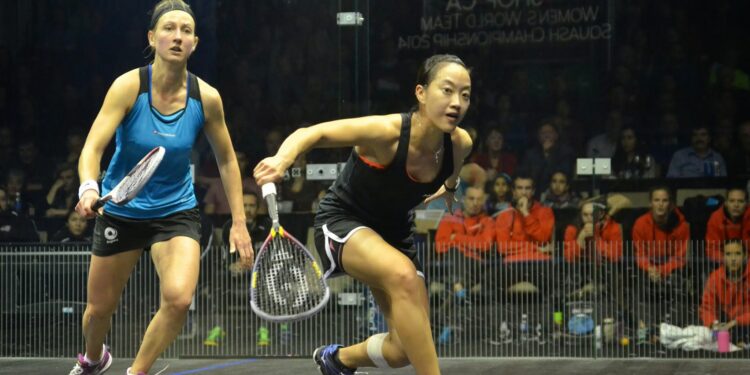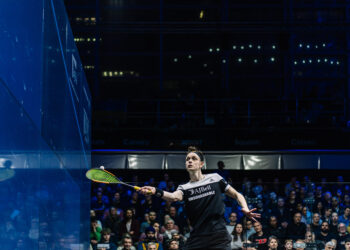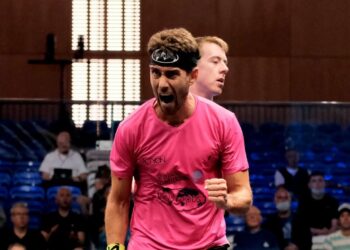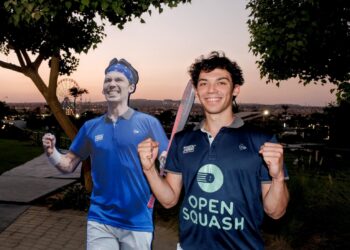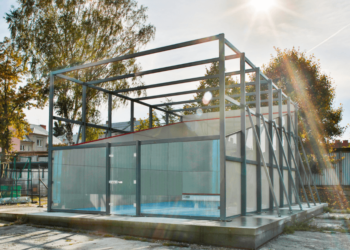Low Wee Wern has opened up on the progress of her “final comeback”, revealing that she is continuing to train through the pain as she gears up for her next tournament in Japan.
Talking to Squash IQ, the Malaysian revealed her motivations for giving pro squash one last shot, and also discussed the unique movement capabilities that propelled her to world number five in 2014, as well as her favourite opponents.
Playing through the pain
Exulted by the game’s greats for her movement, balance and defensive capabilities, Low was headed for the very pinnacle of the sport before injury sidelined her for much of the next seven years.
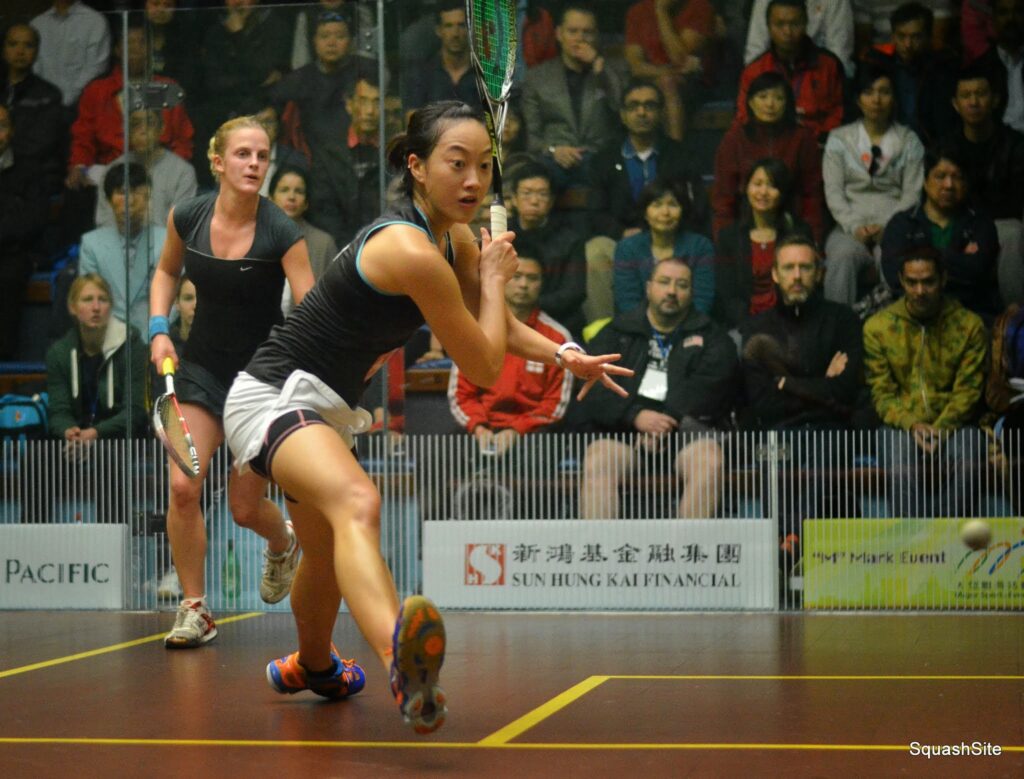
She is now making what she herself has billed as her “final” comeback after returning from a fourth surgery (this time to her right knee – following three to her left between 2014 and 2018).
The 32-year-old is currently training with 12 screws in her knees as she gears up to compete at Japan’s Dynam Cup next month, she told Squash IQ.
Asked to rate her movement out of 10, Low said she is “almost a 5, but is fighting to get to a 6” as she acknowledged that her initial comeback at the Singapore Open in November was premature.
“The hands are still there and I can still play the game. But even when I play one good match and do all the recovery that’s required, the knee just swells up the next day and it’s almost impossible to even step back on court,” she said.
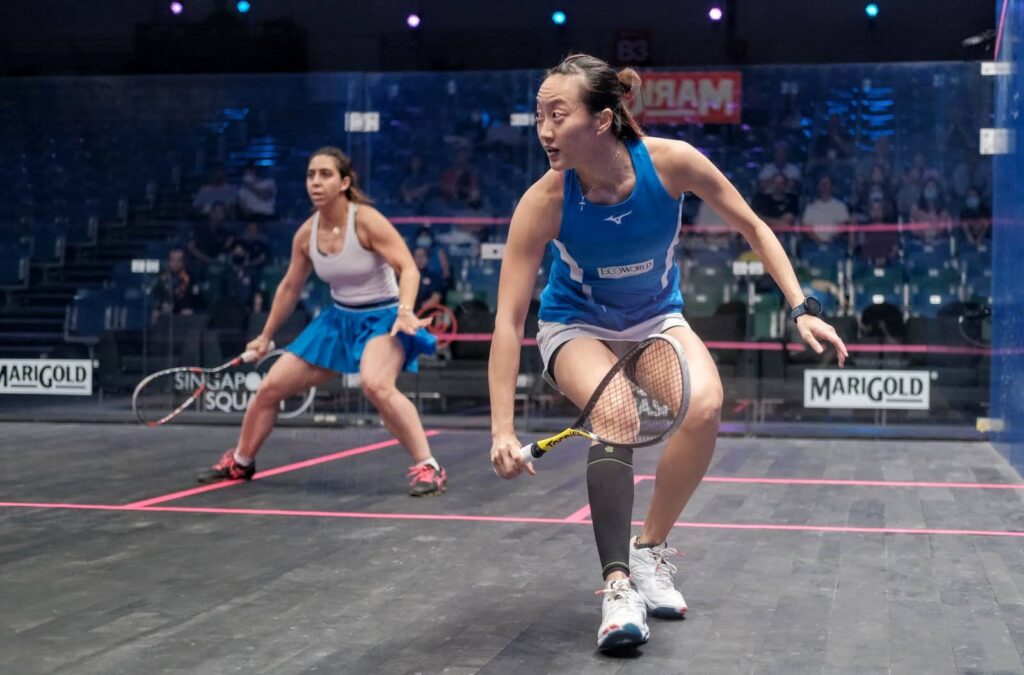
“It’s frustrating that I know I can still play high-level squash, but the body is limiting it.
“That match [at the Singapore Open against Nadine Shahin – pictured above] set me back another month or two, to be honest. I could barely do anything for the next six weeks.”
Inspiration for the nation
Unable to undergo even a 3-4k run due to her knees, Low limits herself to a “very calculated” training regime.
“There’s no reference. I can’t look at someone who’s had four knee surgeries and copy what they did, because no one has ever done it before. A lot of it is trial and error,” she said.
But talking through her motivations for enduring high levels of discomfort, Low revealed that she is determined to inspire others to succeed in a sport she took up at aged eight following the divorce of her parents.
“I can do so many things in my life that don’t relate to squash. But here I am still trying to make the comeback, as the sport has given me so much,” she said.
“I still want to inspire the younger generation, or someone else out there who’s going through a hard time or injury, [to show] there is hope for everyone.”
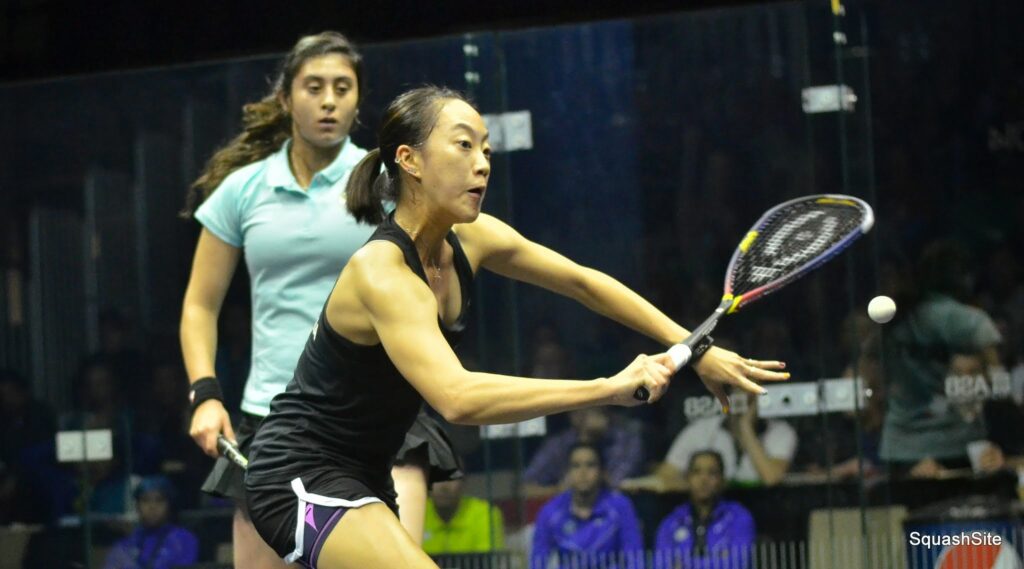
“Coming back after four knee surgeries is not an easy ask – most people would have given up after one or two,” Low added.
“The fourth one was a complicated surgery where no one knew for sure whether I would ever get back on court again. I’m not pain free, and I probably won’t ever be for the rest of my career, so it’s just learning how to manage that the best I can.”
Power plaudits
Back in 2014, Low looked every inch the natural successor to compatriot Nicol David as she earned plaudits from the likes of Jonathon Power for her ability to neutralise pace and stay in rallies through her rubbery movement capabilities (see clip from her 2014 World Teams semi-final victory against Nour El Sherbini below).
But the current world number 82 was quick to play down her movement skills (a side of the game Squash IQ recently explored with Gregoire Marche), instead acknowledging that she lacks the “killer instinct” of some of the top Egyptians.
“Let’s be honest, I was not given the talent like some of the Egyptians, so I have to make it up somewhere else,” Low said.
“I have a very strong foundation, where I can move the ball to the corners and buy myself time, as well as being able to move in a smooth manner and cover the court.”
Dream opponents
Despite presenting a potential banana skin to higher-ranked opponents, Low’s tour comeback will be universally welcomed by those who recall her clean play and refusal to be drawn into refereeing decisions.
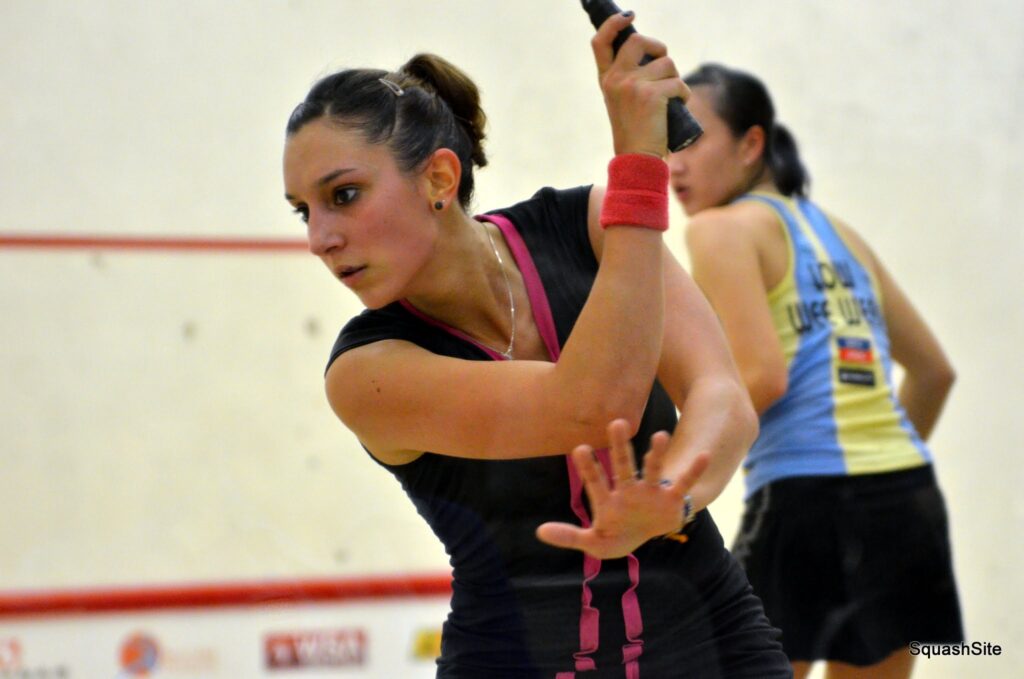
“I’m happy to play any of the girls and I think they’re happy to compete against me, as it’s always a clean, fair match,” she said, nominating Joelle King as her dream opponent.
“Joelle is two years older than me and still on the tour. We’ve both come back from serious injury before and have always had clean matches.
“Camille Serme is another where we’ve had battles throughout our junior career and on tour – unfortunately she decided not to come back after her ankle injury.”
Steadfast sponsors
As US sprinter Allyson Felix and a long line of other professional athletes have found to their cost, sponsors can be notoriously fickle when circumstances change.
Thankfully, Low’s private sponsors stuck with her last year after her Malaysian national funding was abruptly pulled three months after her final surgery (see In Squash podcast here for more – from around 20.20 mins in).
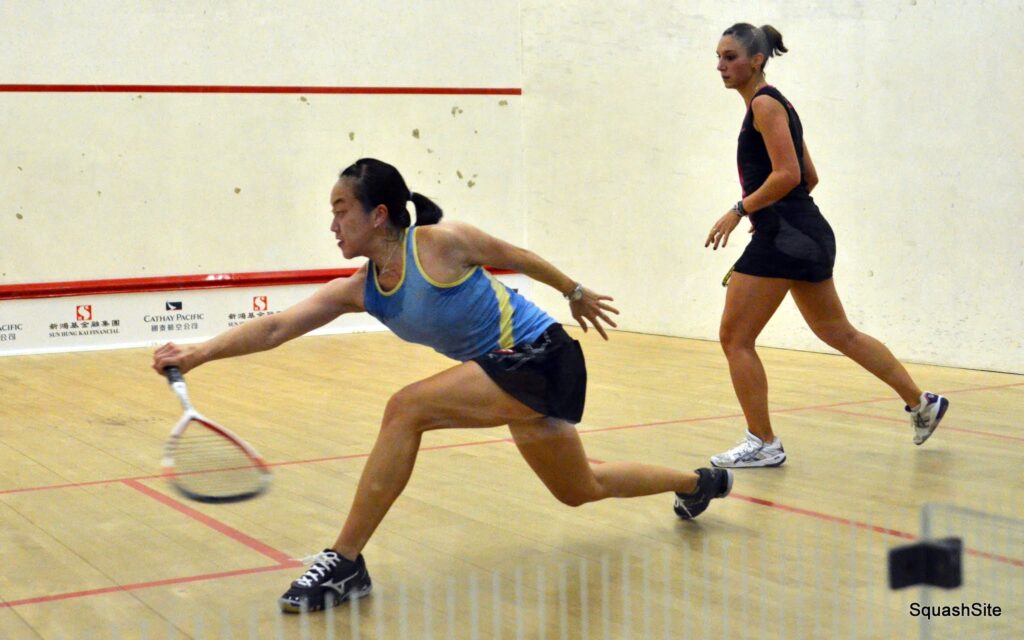
“I still have my private sponsors,” she confirmed.
“They’ve been with me for many years – when I was up they were there, and when I was down they were there as well. When you’re at the top you may get better offers, and if you can stay with them [then], they will be there for you in times like this, so I’m quite fortunate.”
Malaise in Malaysia
Thanks to that loyalty, Low can continue to fulfil her ambition of being a role model for young Malaysian players, fewer of whom she said are pursuing squash as a career than when she was coming through.
This is despite the success of a younger generation of Malaysian players, including Eain Yow Ng in the men’s game and Sivasangari Subramaniam, Rachel Arnold and Aifa Azman on the women’s side of the draw.
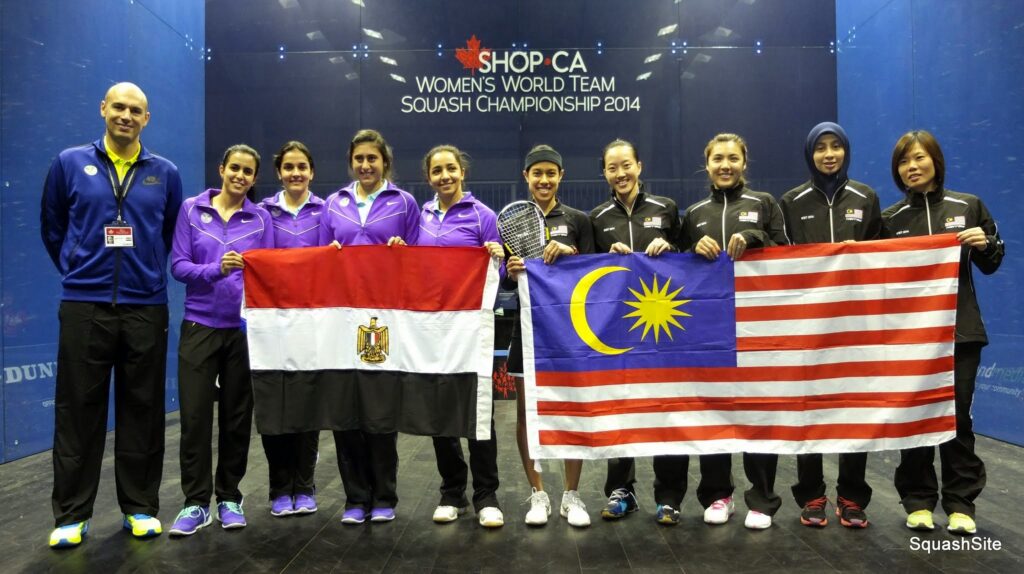
“Something needs to be done to gain players, because at under 11s and 13s we have 64 draws, but as you move up to under 17s and 19s you are left with 16 players, which is not a good sign,” Low said, picking up a thread in recent Squash IQ coverage of the health of squash in England and Australia.
“We need to get people to play squash for a career rather than playing for a couple of years and then disappearing.”
Home soil
Although David and Malaysia’s two most successful ever male players, Ong Beng Hee and Azlan Iskandar, opted to train abroad, Low is determined to show young athletes they can reach their full potential by staying at home.
“I have never trained at the national centre and always trained in Penang, where I grew up,” she said.
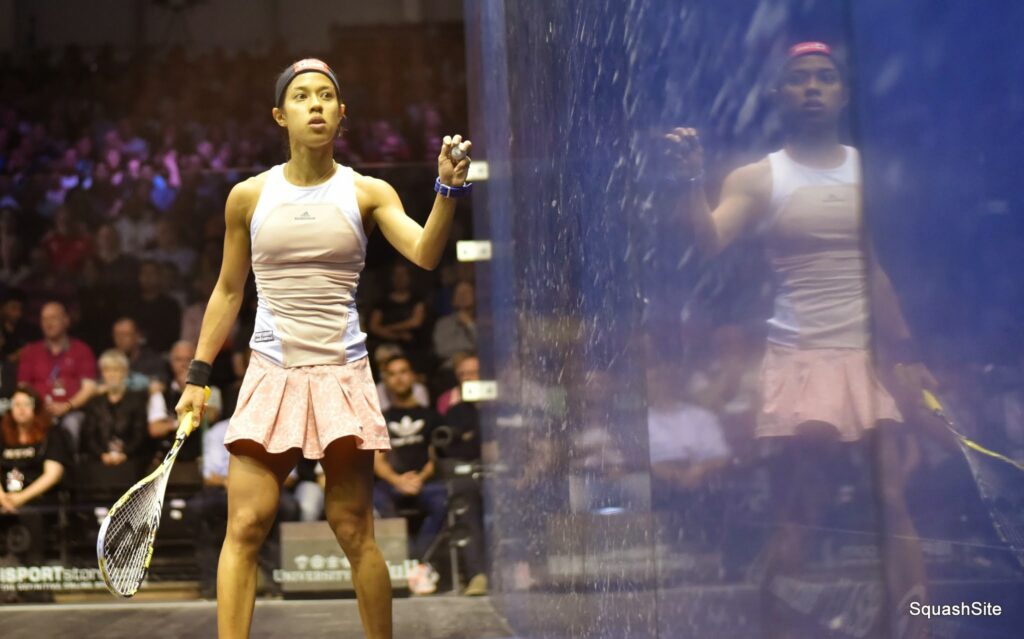
“There’s nothing wrong with going overseas. Nicol, Ong and Azlan did it. But financially, it’s more viable to do it back home,” Low added.
“A lot of people told me I’d never break the top 10 in the world if I did it back home in Penang – and I got into the top five. This should let the younger ones know they can make it here. It’s possible if you’re willing to put the work in.”
Reflecting again on her own career, Low said she has “achieved enough to walk away from the sport with my head held high”.
“I’m making my final comeback to show that you can still get back on tour, despite all the surgeries I’ve had. I’m playing with 12 screws in my knees right now, so it’s almost a miracle I’m back on court,” she concluded.

